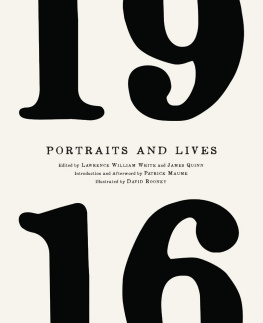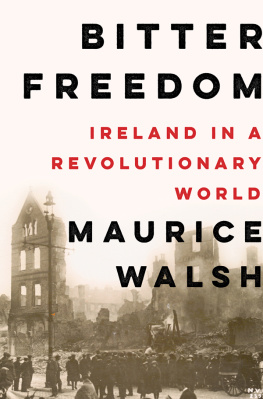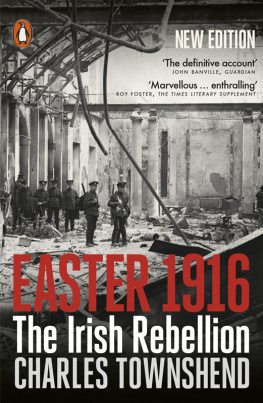1916:
The Easter Rising
TIM PAT COOGAN

To Charles and Wilma Mooney,
friends to me and to Ireland.
Contents
either character or circumstance may be the basis of a sunkrisis (comparison); similar events affecting dissimilar persons and similar persons reacting to contrasting events alike provide a suitable field for the exercise. It is basically a rhetorical procedure: but it is rescued from purely rhetorical ingenuity by its value as a way of concentrating and directing the moral reflections which are the primary purpose of biography.
D. A. Russell, PLUTARCH (London, 1973)
The 1916 Rising was both profoundly important and profoundly unnecessary. Widely and rightly hailed as a high water mark of the Green or Catholic and Nationalist tradition, it was in fact triggered off by the Orange and Protestant tradition and its British allies. Redmond Howard, a politically aware witness to the Rising and a critic of the rebels, wrote in its aftermath: There never was, I believe, an Irish crime if crime it can be called which had not its roots in an English folly. His words are still relevant. The genesis of 1916 has an uncanny resemblance to contemporary Irish events in certain significant regards. For although one ushered in a period of violent change, the other (hopefully) of peaceful alteration, nevertheless if one changes the word biography to history in the foregoing quote, one finds that Russells thesis of sunkrisis becomes disturbingly apposite when applied to the 1916 Rising and to what may validly be termedEaster Two, the Good Friday Agreement of 1998. In both cases, a majority of political opinion in Ireland, England and amongst the Irish diaspora was and is in favour of a certain process being given legislative effect. In what might be termed Easter One, that of 1916, an overwhelming majority in favour of Home Rule was registered some four years before the Rising broke out, at the time when the third Home Rule Bill was introduced in 1912.
In the case of the contemporary Peace Process, there was equally overwhelming support for the ceasefire declared by the Provisional IRA on 31 August, 1994, four years before Easter Two, when the Good Friday Agreement was finally signed. Both processes were destined to be seriously impeded by the Ulster Unionists and their English Conservative allies in politics and the army. These are nothing like as potent now as they were in 1916. But they are not without a malign efficacy nonetheless. Ominously too, just as in 1916 a small segment of the physical force school of Irish Nationalism, like their counterparts in the Volunteers of 1916, have declared no confidence in the constitutional process and have placed their faith in violent means to achieve their ends. This decision has resulted in a series of bombing attacks ranging from the Omagh atrocity in Ireland to an explosion at BBC Centre in London. Whether the group responsible, the so-called Real IRA, has the remotest possibility of achieving anything of the effect of the 1916 men is debatable to say the least.
What the four years of contemporary delay and their stagnant aftermath of two further years of squandered opportunity will ultimately lead to, nobody knows. But in grappling with the challenges posed by the Real IRA and therecalcitrant Orangemen, it is at least instructive and at worst alarming to examine what four years of delay and extra parliamentary defiance led to in 1916, a date that still holds all the sacrificial significance of High Mass for Irish Republicans. Ultimately, modern Ireland and its two states were created. But these were achieved at the cost of the vicious Black and Tan war which broke out after the Rising, the even more vicious Irish Civil War which followed the ending of Anglo-Irish hostilities and the partition of Ireland. This last was responsible for a murderous pogrom and population displacement of Catholics. There followed the creation of an apartheid system of government the institutionalisation of discrimination and gerrymandering as methods of preventing a rise in the Catholic vote in the 1920s. The results were a divided community, various intermittent outbreaks of violence and the thirty continuous years of the Troubles, which the Good Friday Agreement was intended to put an end to for ever.
When looked at against the contemporary background of the faltering Peace Process, the 1916 Rising is transformed from being an historical event into a cautionary tale for today. To tell the tale of Easter Week by merely reciting the events which occurred that fateful April would be analogous to attempting to describe the development of the American West solely by reference to events such as the shoot-out at the OK Corral. Granted that the Rising was a seminal event in Irish history, and that out of it modern Ireland emerged, and as the poet said, all was changed, changed utterly. But it is what has not changed that matters, namely the resistance of a sizeable section of Protestant opinion in north-eastern Ireland to the Peace Process, and the continuing involvementof the Conservative Party and sections of the British security forces in that resistance. Set in that context, 1916 becomes no faraway historical event but a cautionary tale. While I hope to give the average intelligent reader a good general grasp of what happened in 1916, I have also attempted to bring home the lesson that the message of 1916 is as vitally important today as it was then. The message is that those who do not learn from history really can be doomed to relive it
THE ROSE TREE
But where can we draw water,
Said Pearse to Connolly,
When all the wells are parched away?
O plain as plain can be
Theres nothing but our own red blood
Can make a right Rose Tree.
The play scheduled for the Abbey Theatre that night was Yeatss Cathleen Ni Houlihan. In it, Cathleen Ni Houlihan (Ireland) is an old woman who appears in a house where a wedding has been prepared on the eve of the 1798 Rebellion. She says that she is buoyed up by the hope of getting my beautiful fields back again; the hope of putting the strangers out of my house. By the end of the play, she has been transformed into a young girl with the walk of a queen, and the prospective bridegroom has left to join the Rebels, of whom the old woman says:
They shall be speaking forever,
The people shall hear them forever.
It was an uncannily appropriate production, in more ways than one. The stage drama had to be postponed because the street theatre outside took over. Cathleen Ni Houlihan no longer graces the Abbey boards, but in a real sense the old ladys wishes are still echoed in some quarters in Irelandand at the time of writing, the play goes on.
The reason it does so is contained in the same pithy sentence which led to the 1916 Rising: Ulster will fight and Ulster will be right. It is also the reason why six of Irelands north-eastern counties are still ruled from London and why in 1998 three sovereign governments, those of the Republic of Ireland, the United Kingdom and America, involved themselves with Irish political parties in negotiating the Good Friday Agreement which it was vainly hoped would settle the argument over the beautiful fields.
The significance of that sentence lies not merely in its wording, but in its context and its source. The context was the debate in late nineteenth-century England and Ireland on the issue of introducing Home Rule to Ireland. The source was a senior British Conservative, Lord Randolph Churchill, who addressed his audience in an artfully duplicitous manner which became the

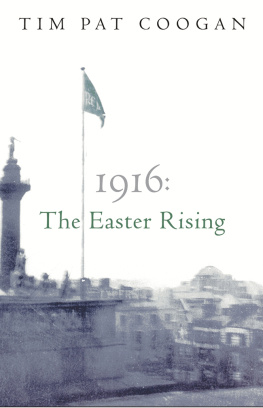
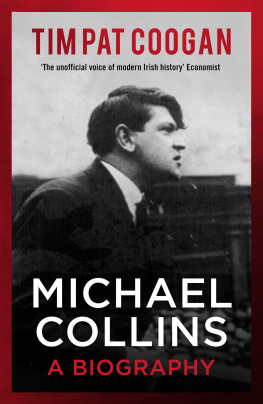
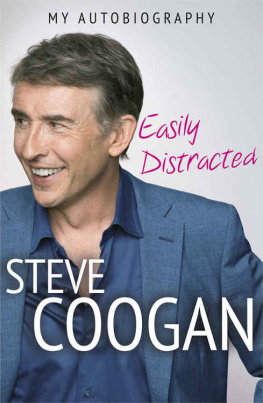
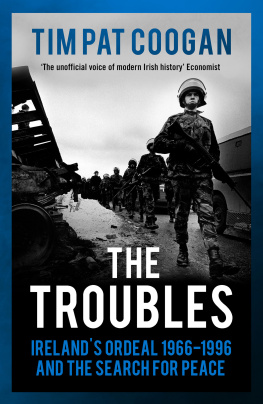

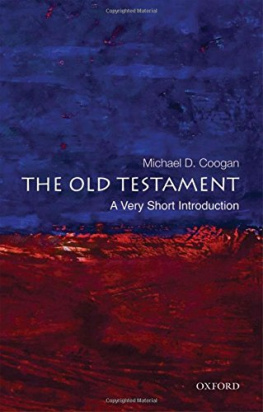
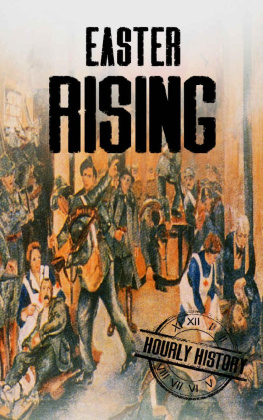
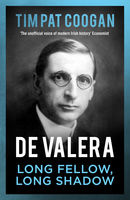
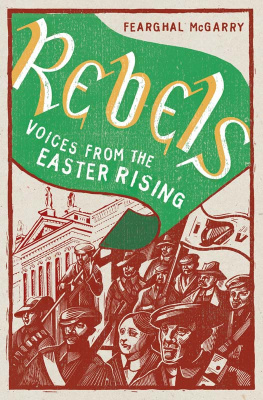

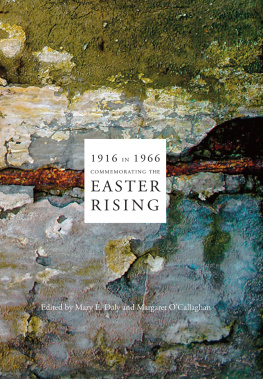
![Lorcan Collins [Lorcan Collins] - 1916: The Rising Handbook](/uploads/posts/book/143326/thumbs/lorcan-collins-lorcan-collins-1916-the-rising.jpg)

